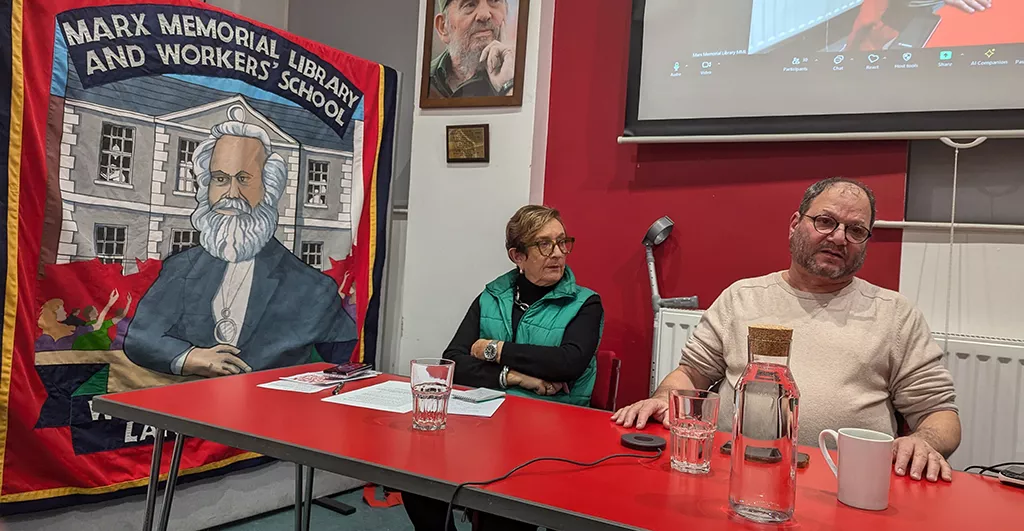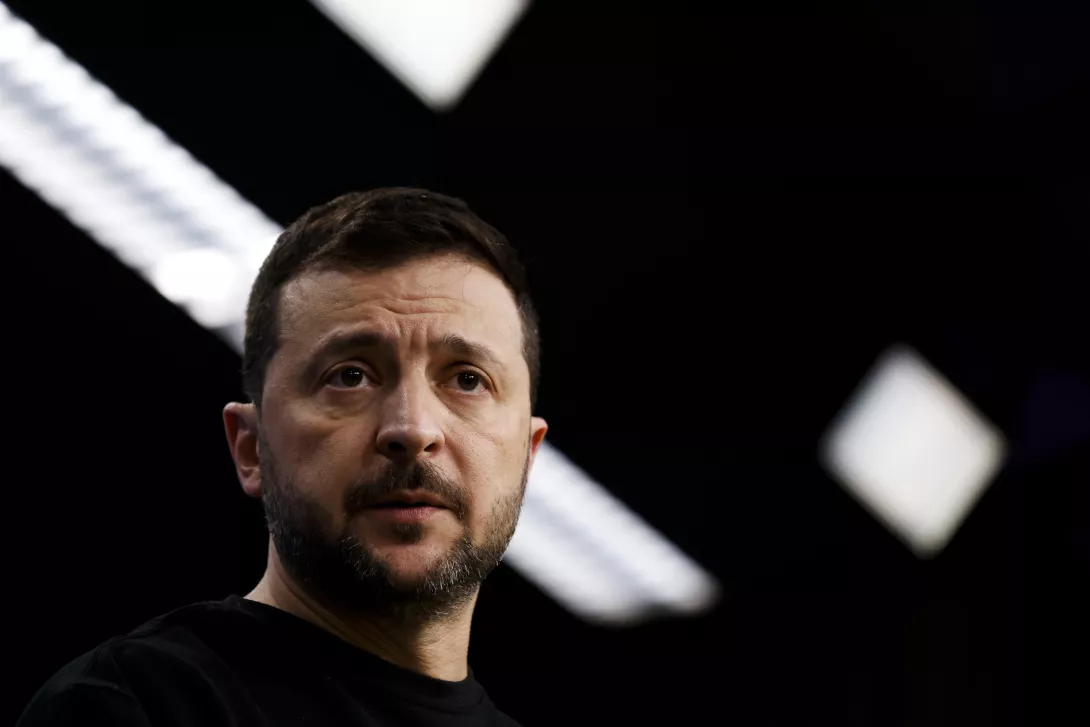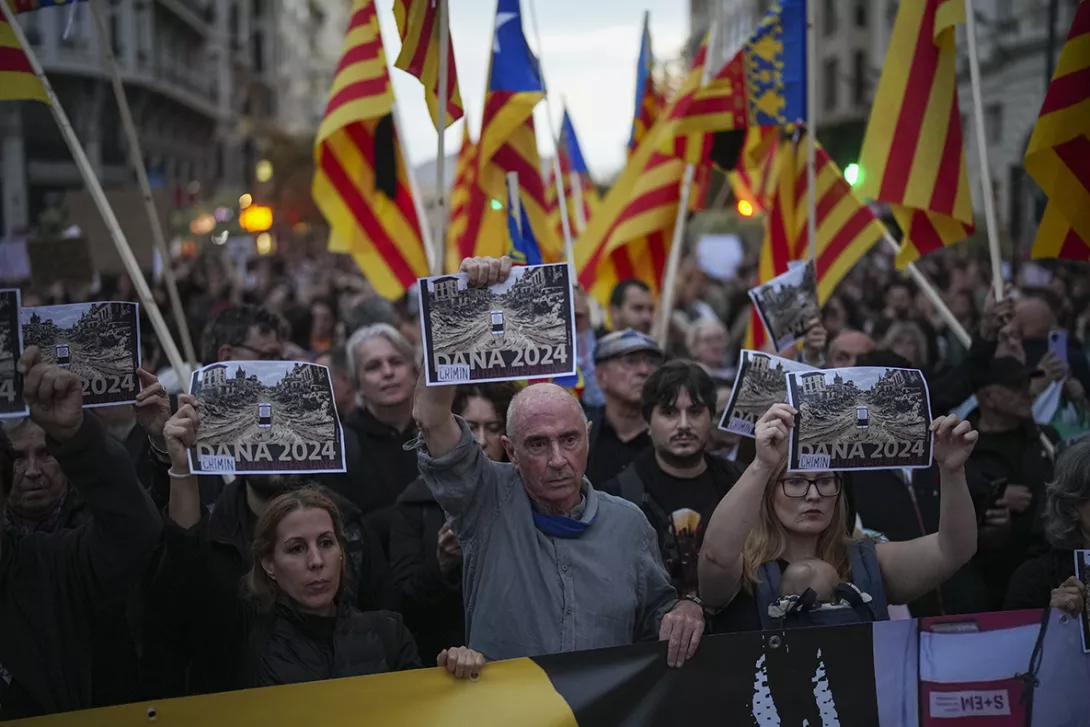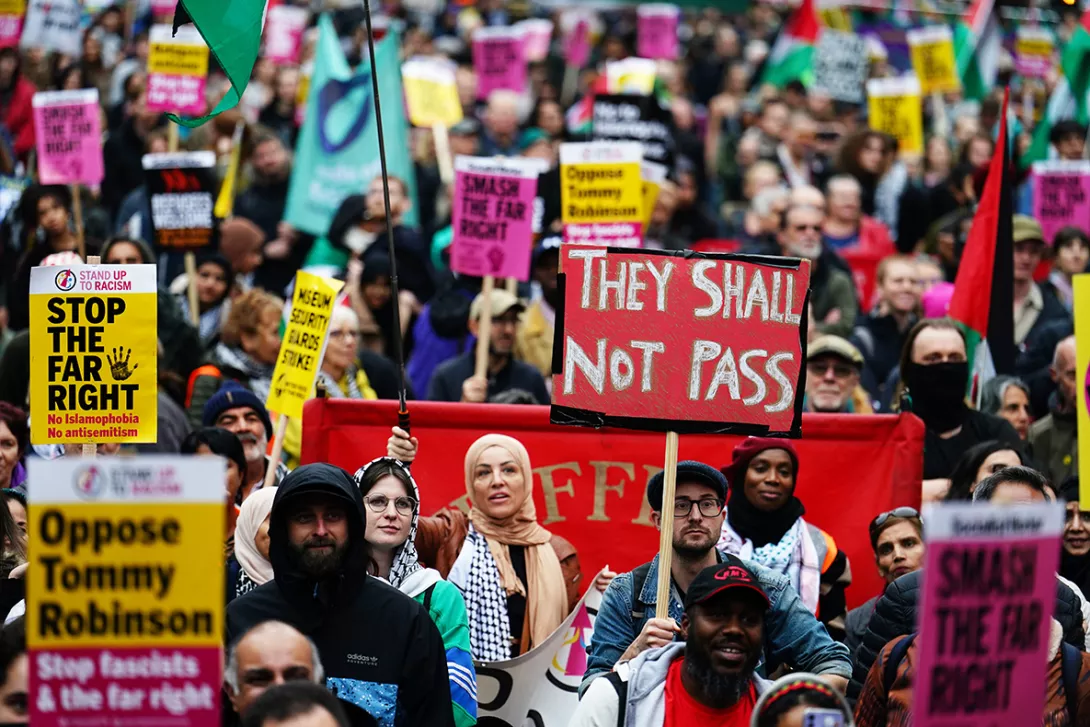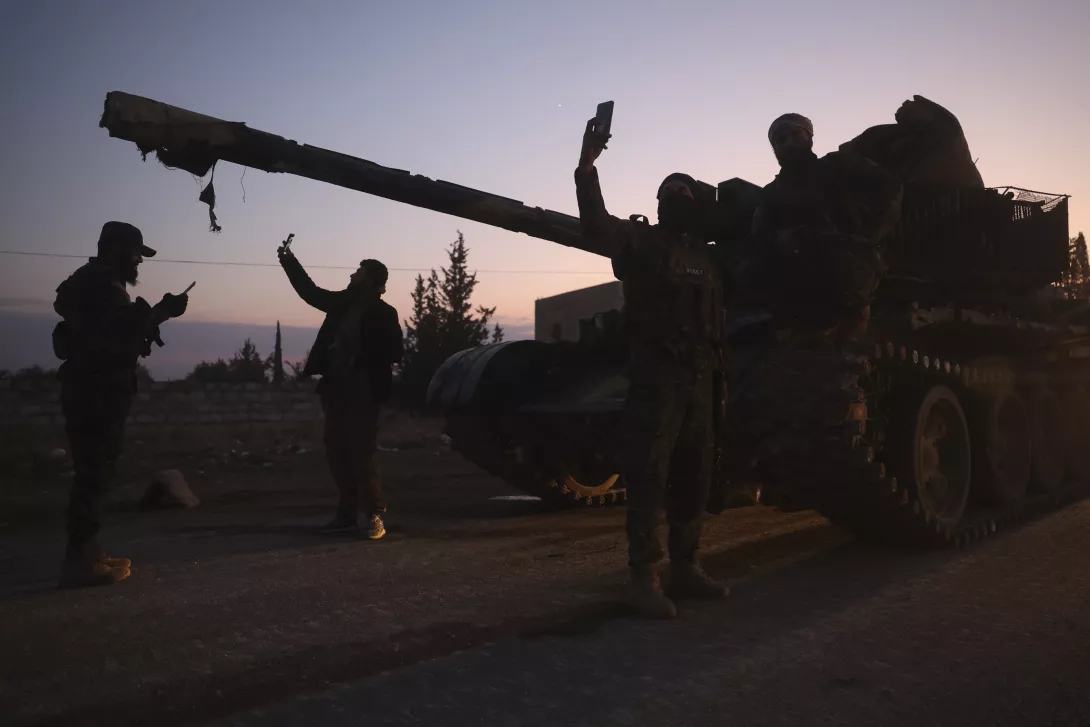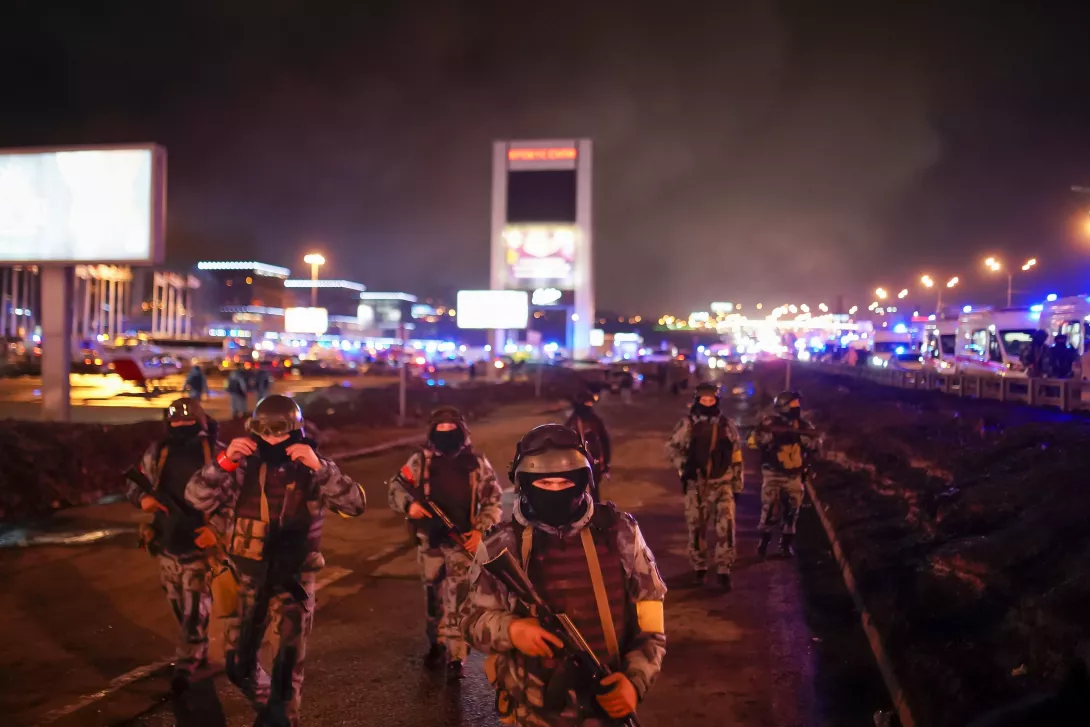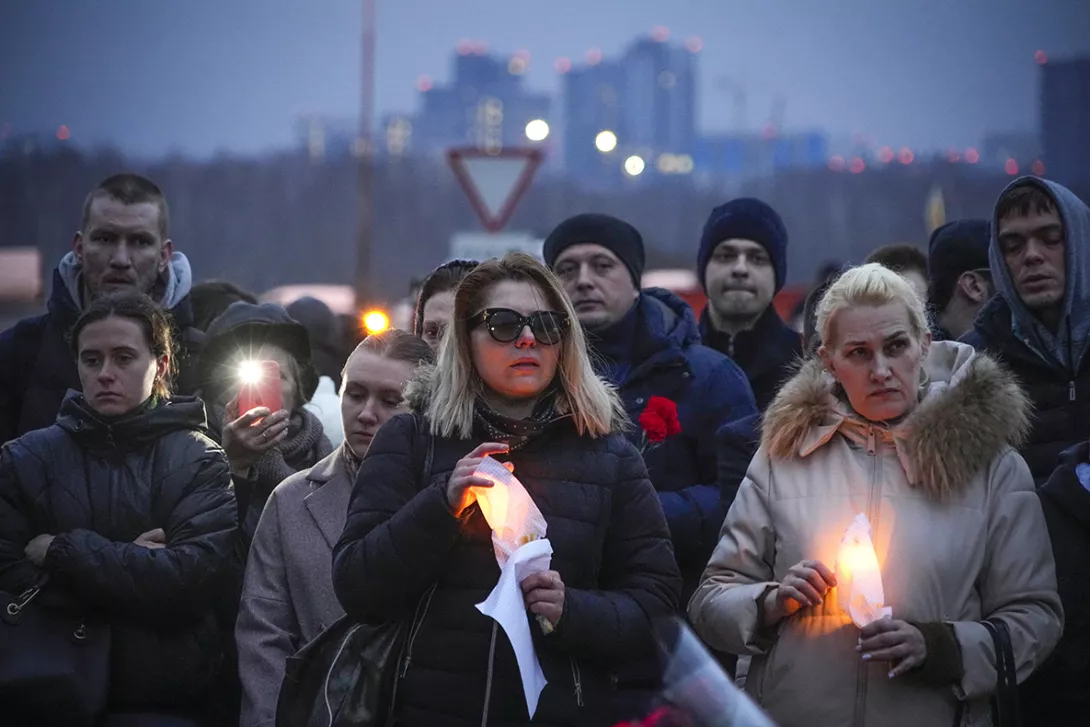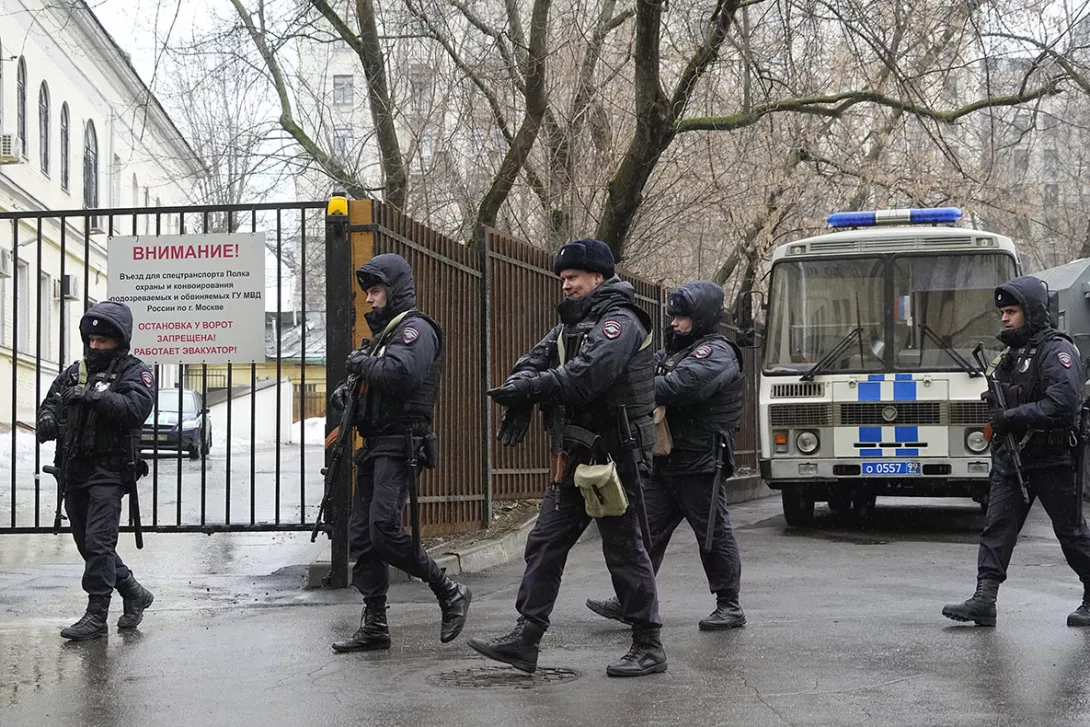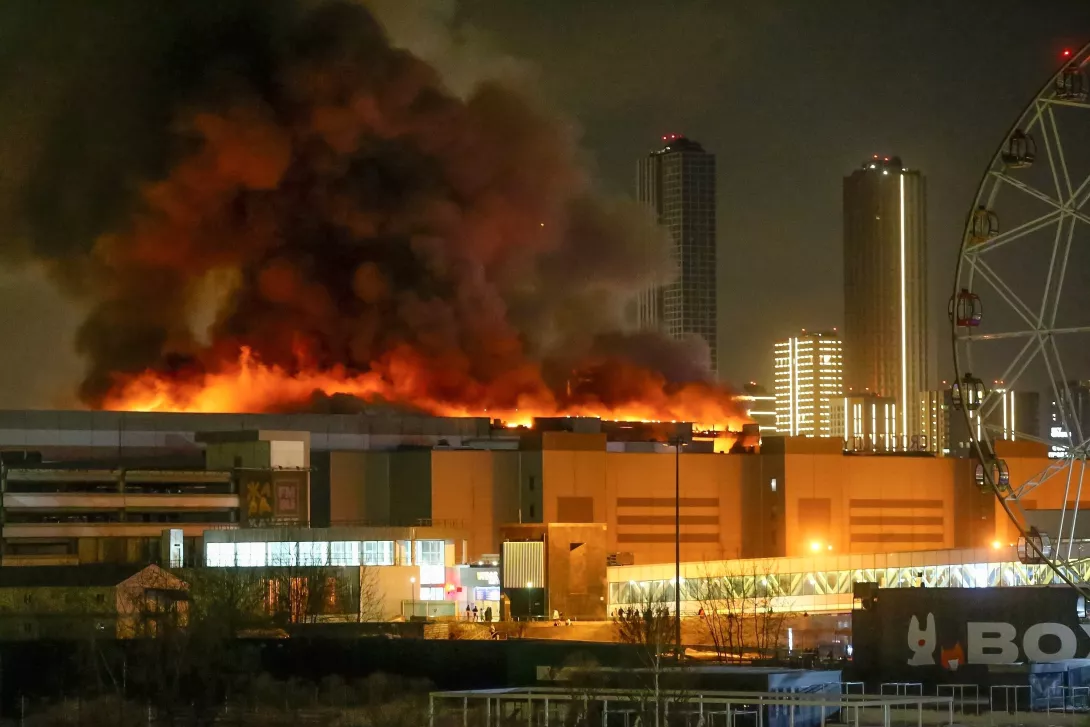
THE horrific attack on the Crocus City Hall concert venue in Moscow has been claimed by the Islamic State in Khorasan Province.
This Afghanistan-based branch of the terrorist group has form for mass slaughter of civilians, such as the killing of 175 at Kabul airport in 2021. Its savagery is unusual even among terrorists, if assessed by its choice of targets, which have included an attack on a Kabul maternity ward where its “fighters” gunned down mothers and infants.
There are already attempts to blame various governments for the atrocity. The political motives for such accusations are obvious, and they should be treated with extreme caution. There is no need to cite conspiracies to explain an Isis attack on Russia.
Russia’s military intervention in Syria on behalf of the Bashar al-Assad government was the turning point in its civil war.
The nature of that war is obscured in Britain by propaganda that portrayed an opposition dominated by radical jihadists — those under the al-Qaida umbrella were not ideologically that distinct from Isis — as democratic.
Western arming and funding for anti-Assad groups was mis-sold to the public, with mainstream media such as the BBC and Guardian routinely asserting that Assad was not really fighting Isis, although the group’s own published lists of “martyrs” made clear the majority were killed by the Syrian Arab Army.
This means Isis in British eyes is primarily seen as an “anti-Western” outfit, but from the perspective of its adherents Russia is also an enemy. For its Afghan branch, the long history of (US-equipped) jihadist war against Soviet forces may also be a factor.
So can we say, as the White House did on Saturday, that Isis is simply “a common terrorist enemy that must be defeated everywhere”?
It is not so straightforward, because of the complex relationship of Western governments with jihadist terror and their propaganda use of it to demonise Muslims and Palestine solidarity campaigners.
Isis’s choice of targets should at least give the lie to the latter. There is no correlation between support for Palestine and support for jihadist groups.
If anything — as in Syria where they fought against Hezbollah — their actions have tended to benefit Western geopolitical interests. The Palestine solidarity movement is broadly left-wing in character, secular and anti-imperialist: it has little in common with the image conjured up in government propaganda of anti-democratic Islamists.
And far from being sympathetic to terrorism, anti-imperialists recognise its connection to the foreign policies of leading Western powers.
This is true in a general sense — Isis was born out of the carnage of the Iraq war — but also specifically, since the US and its allies regularly assist extremist armed factions in pursuit of foreign policy aims, regardless of their ideology — neonazi in the case of Ukraine’s Azov Battalion, but including a variety of Islamist outfits in Syria or Libya.
In the latter the link proved tragically clear when Salman Abedi, a jihadist whose travel to Libya and back was deliberately facilitated by British intelligence, murdered 22 people in the Manchester Arena bombing of innocent concert-goers just like those killed in Moscow.
This is not a question of short-sightedness. It is cynical. Tony Blair was warned invading Iraq would raise the risk of terrorist attacks, but proceeded anyway.
For imperialist governments, the raised threat to civilians is a price worth paying to advance their interests. Across swathes of Africa and Asia, sectarian religious movements have proved useful in dividing populations and preventing the formation of united anti-imperialist fronts.
That does not make a terrorist group like Isis an instrument of Western policy, or justify conspiracy theories about one state or another being behind its terrible crimes.
It does highlight the need to oppose the root causes of terrorism in imperialism, and redouble the struggle for peace.
